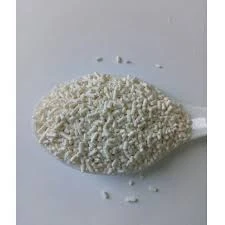
additives and preservatives
Additives and Preservatives Understanding Their Role in Our Food
In the modern world, where fast-paced lifestyles and convenience reign supreme, the use of food additives and preservatives has become nearly ubiquitous. These substances are often viewed with skepticism by consumers concerned about health and safety; however, they play a significant role in enhancing the flavor, texture, and shelf life of many foods we consume daily.
What Are Food Additives and Preservatives?
Food additives are substances added to foods to achieve specific effects, such as improving taste, appearance, or texture. They can be classified into various categories, including flavor enhancers, colorings, and emulsifiers. Preservatives, on the other hand, are a specific type of additive used to prevent spoilage and prolong shelf life by inhibiting the growth of bacteria, molds, and yeast. Common preservatives include salt, vinegar, and chemical compounds like sodium benzoate and potassium sorbate.
The Importance of Food Additives and Preservatives
1. Safety and Longevity One of the primary functions of preservatives is to ensure food safety. By preventing microbial growth, they reduce the risk of foodborne illnesses, which can lead to significant health issues. Additionally, preservatives extend the shelf life of products, making it feasible to transport and sell food over longer distances and periods.
2. Quality Maintenance Additives can help maintain the quality of food during processing and storage. For example, antioxidants prevent fats from becoming rancid, while stabilizers improve the consistency of products like salad dressings. This not only enhances taste but also ensures that we can enjoy foods at their peak flavor.
3. Cost-Effectiveness By prolonging shelf life and reducing spoilage, additives contribute to lowering food waste. This is particularly important in an era where food waste is a significant global issue, impacting the economy and the environment.
additives and preservatives

4. Consumer Preferences In a competitive market, food manufacturers often use additives to meet consumer demands for variety and flavor. For instance, flavor enhancers can make a product more palatable, increasing consumer satisfaction and sales.
Controversies Surrounding Additives and Preservatives
Despite their benefits, there is a growing concern regarding the health implications associated with certain additives and preservatives. Some studies suggest links between artificial additives and various health issues, including allergies, hyperactivity in children, and even chronic diseases. As a response, health-conscious consumers are increasingly seeking clean label products that list fewer, more natural ingredients.
Regulatory agencies, like the Food and Drug Administration (FDA) in the United States and the European Food Safety Authority (EFSA) in Europe, assess the safety of food additives before approval. These organizations have established acceptable daily intake levels for various substances, aiming to protect consumer health while allowing the continuation of food production practices that benefit the economy.
Navigating the Food Labeling Landscape
For consumers, it can be challenging to navigate the world of food additives and preservatives. Understanding labels and ingredient lists is crucial. Products labeled as “organic” or “natural” often use fewer artificial additives; however, it’s essential to read the ingredient list carefully. Familiarizing oneself with common additives and preservatives, such as E-numbers in Europe, can help in making more informed choices.
Conclusion
Additives and preservatives serve essential functions in our food system, acting as guardians of safety, quality, and sustainability. While concerns over their consumption are valid and warrant attention, it is crucial to approach the subject with a balanced perspective. By staying informed and making conscious choices, consumers can enjoy the benefits of modern food technology while minimizing potential risks. As we move forward, the ongoing dialogue between consumers, manufacturers, and regulatory bodies will shape the landscape of food consumption, promoting health and well-being in our diets.
-
Pure Sodium Dichloroisocyanurate Dihydrate | Powerful DisinfectantNewsAug.29,2025
-
Industrial Chemicals: Quality & Purity for Every IndustryNewsAug.28,2025
-
Nitrile Rubber Honoring Strict Production StandardsNewsAug.22,2025
-
Aspartame Ingredients Honoring Food Safety ValuesNewsAug.22,2025
-
Fertilizer for Balanced Plant NutritionNewsAug.22,2025
-
Cyanide Gold Processing with High Purity AdditivesNewsAug.22,2025
-
Formic Acid in Textile Dyeing ApplicationsNewsAug.22,2025
Hebei Tenger Chemical Technology Co., Ltd. focuses on the chemical industry and is committed to the export service of chemical raw materials.
-

view more DiethanolisopropanolamineIn the ever-growing field of chemical solutions, diethanolisopropanolamine (DEIPA) stands out as a versatile and important compound. Due to its unique chemical structure and properties, DEIPA is of interest to various industries including construction, personal care, and agriculture. -

view more TriisopropanolamineTriisopropanolamine (TIPA) alkanol amine substance, is a kind of alcohol amine compound with amino and alcohol hydroxyl, and because of its molecules contains both amino and hydroxyl. -

view more Tetramethyl Thiuram DisulfideTetramethyl thiuram disulfide, also known as TMTD, is a white to light-yellow powder with a distinct sulfur-like odor. It is soluble in organic solvents such as benzene, acetone, and ethyl acetate, making it highly versatile for use in different formulations. TMTD is known for its excellent vulcanization acceleration properties, which makes it a key ingredient in the production of rubber products. Additionally, it acts as an effective fungicide and bactericide, making it valuable in agricultural applications. Its high purity and stability ensure consistent performance, making it a preferred choice for manufacturers across various industries.





